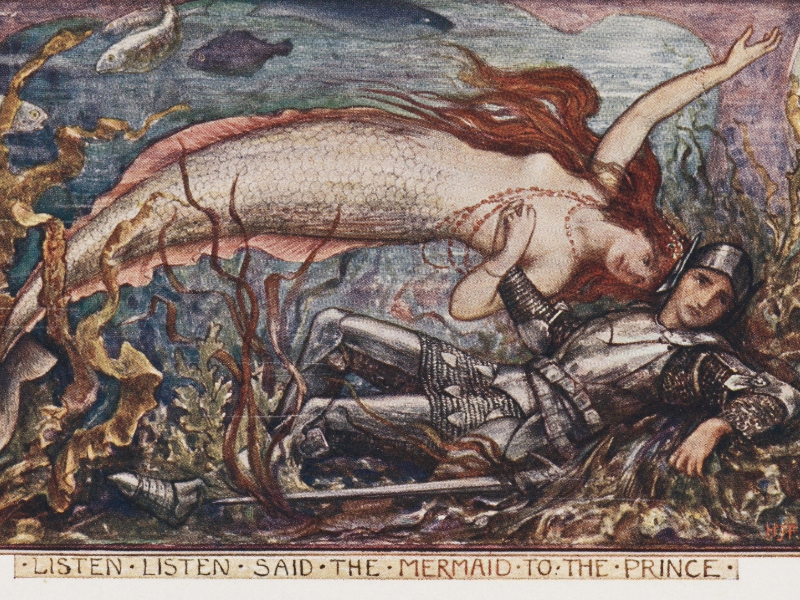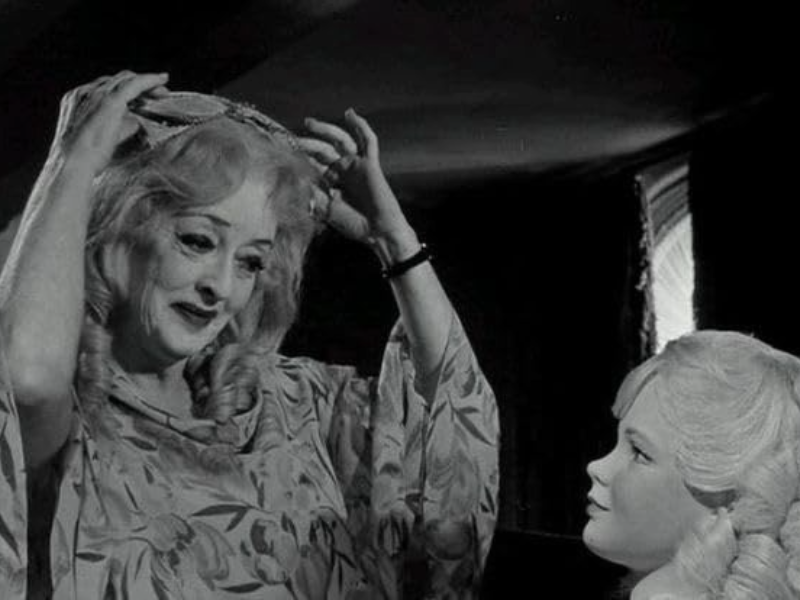
Mermaids, Part 2
How did mermaids go from apex predators whose voices could kill to Disney princesses who'd sacrifice their voice for love? This transformation reveals the systematic domestication of female power and nature itself.

Episode 36: Mermaids, Part 1
In this deep dive into global mermaid mythology, we explore ancient Greek bone-heaps, oceanic folklore, and a disturbing truth about humanity's relationship with the natural world. Because what if these stories were never really about women at all?

Episode 35: The Women of Dracula, Part 2
Dig deeper into the graveyard dirt in "The Women of Dracula, Part 2." We unpack the novel's hidden horrors, from the monstrous Brides and Mina Murray's surprising intellectual power to Jonathan Harker's unsettling journey. Discover why this classic is more than just a vampire story – it's a profound look at Victorian anxieties about women, intellect, and masculinity.

Episode 34: The Women of Dracula, Part 1
The real horror in Dracula isn't the vampire – it's Victorian fear of female sexuality. Explore how Lucy Westenra's story reflects 19th-century panic over women's independence in this feminist literary analysis of Stoker's Gothic classic.

Episode 33: Hagsploitation
Explore the twisted world of "hagsploitation" horror – where ageing women become monsters. Discover how Hollywood legends Bette Davis and Joan Crawford transformed Hollywood's ageism into psychological terror, creating a subgenre that both exploited and empowered women past their "prime."

Episode 32: The White Witch of Rose Hall
Two women. One real. One invented. Both remembered as monsters. What does it say that Annie Palmer – the White Witch of Rose Hall – and Delphine LaLaurie are the most infamous slaveholders in history… and both are women?

Episode 31: Botan Doro
The ghostly sound of wooden sandals clicking down a dark street – kara-kon, kara-kon – has haunted Japanese audiences for more than 300 years. The source? A beautiful woman and her servant, who carries a peony lantern, searching eternally for her lost love. But this isn't just any ghost story – it's one of Japan's most influential supernatural tales.

Episode 30: Wise Wives and Witch Hunts
Discover how King James VI's insecurities sparked the North Berwick Witch Trials – the first of Scotland's brutal witch hunts. When storms hit his wedding voyage, he blamed witches—leading to torture, execution, and a Bible translation that shaped centuries of misogyny. A dark tale of fragile masculinity meets divine right.

Episode 29: Monsters and morals
Meet the shishiga, the siguanaba, Umm al-Duwais, and the Deer Woman. These female monsters from across the globe have a shared duty: They warn, protect, and punish – but this time, they’re targeting men.

Episode 28: Chloe, Cleo, and the Myrtles Plantation
Chloe, the world-famous ghost of an enslaved girl lynched for poisoning a white woman and two children, has put the Myrtles Plantation on the dark tourism map. If that sentence felt problematic to you, I promise, it gets worse.

Episode 27: Hillary Clinton and the Lizard People
Paranormal Pajama Party returns with a look at conspiracy theories, gender, and power, exploring how women in politics are often demonised. Listen to the Season 3 premiere now.

Ladies, Listen To This Before You Build Your Crow Army
Explore ghost stories and paranormal legends with a feminist twist on season three of Paranormal Pajama Party.

“Get Away From Her, You Bitch!”
As I think about the "Alien" series more, I keep coming back to its use of a gendered term as the go-to insult. It seems weird for a feminist movie franchise. Why does it keep popping up in powerful moments? Read on to reclaim language with Ripley.

MU/TH/UR Doesn’t Always Know Best
Let's talk about a freaky maternal figure who didn’t get the recognition she deserved in the Alien episode: MU/TH/UR, the Nostromo’s artificial intelligence system.